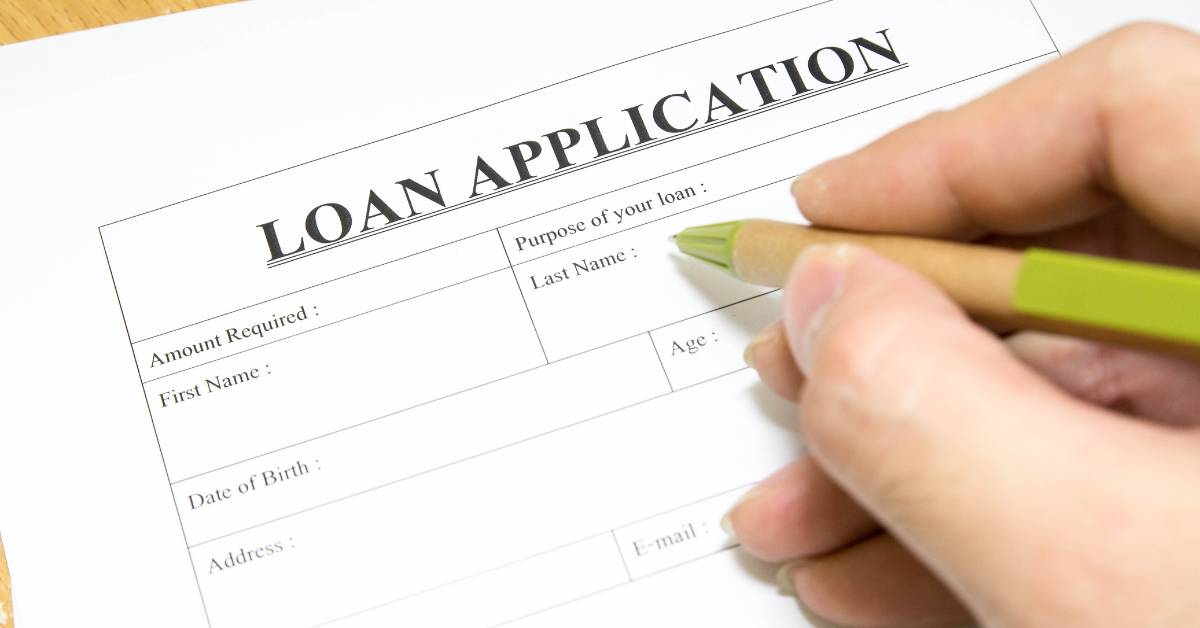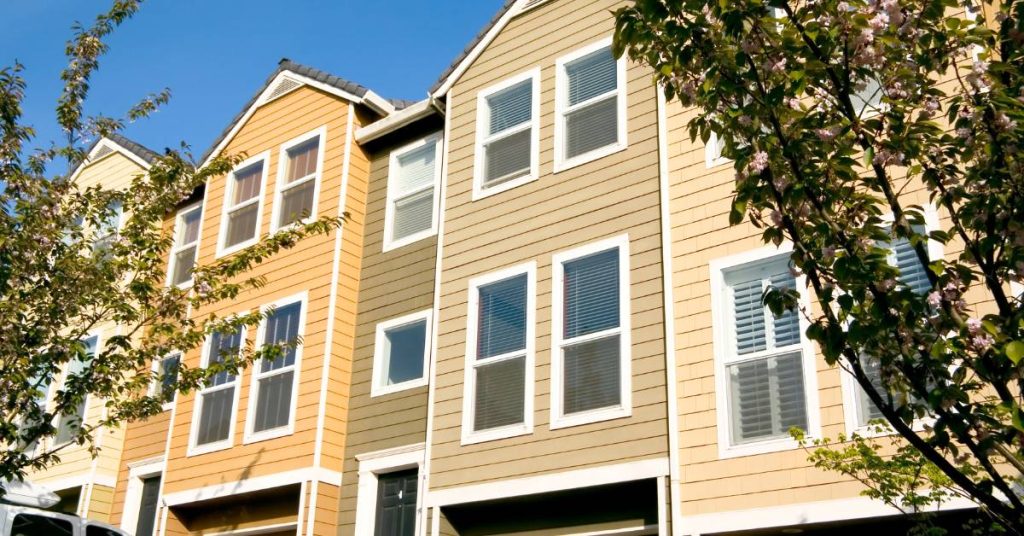Are you considering purchasing a townhouse?
Perhaps you’re curious about the feasibility of purchasing a townhouse with an FHA loan.
It’s reassuring to know that it is indeed possible, even though some specific criteria must be met to qualify.
This article will delve into the requirements for buying a townhouse with an FHA loan, examine the advantages and disadvantages of this approach, and provide guidance on how to initiate the process.
So buckle up, and let’s get into it.
What Types of Homes Qualify for FHA Loans?
Let’s begin by examining which types of houses are eligible for FHA loans.
FHA loans are intended to make homeownership more accessible to individuals with less-than-perfect credit and first-time homebuyers. As a result, the FHA has established specific criteria for the types of homes that can be purchased with an FHA loan.
To qualify for an FHA loan, the townhouse must meet specific requirements, including:
- The townhouse must be your primary residence.
- The townhouse must be a single-family home or a multi-unit property with up to four units, with one unit occupied by the borrower.
- If the townhouse is a condo or part of a planned unit development (PUD), it must be situated in an FHA-approved condo complex.
If the townhouse you are considering satisfies these criteria, you may be able to acquire it using an FHA loan.
How Do I Apply for an FHA Loan to Purchase a Townhouse?

The FHA loan townhouse application process is relatively straightforward. Here are the general steps you’ll need to take:
- Find a lender that participates in the FHA loan program. If you fancy a townhouse in any of our service areas, give us a call, and we’d get you started.
- Complete your loan application and submit all necessary documents, such as proof of income, employment, and assets.
- The lender will review your application and assess whether you meet the requirements for an FHA loan.
- If you’re approved, the lender will provide you with a loan estimate detailing the loan terms, interest rate, fees, and closing costs.
- You’ll need to carefully review and sign the loan estimate and provide any additional documents the lender requires.
- Finally, you’ll attend the closing to sign the necessary paperwork and finalize the loan.
Remember that the specifics of the process may vary slightly depending on the lender and your circumstances, so it’s always a good idea to work with a loan officer who can help guide you through the process and answer any questions you may have.
Is an FHA Loan a Viable Option for Me?
Deciding whether to use an FHA loan for a townhouse purchase depends on several factors, including your financial situation. Some important considerations are:
- Your credit score: FHA loans have more relaxed credit score requirements than conventional loans, making them a viable option for homebuyers with lower credit scores.
- Your down payment: FHA loans require a minimum down payment of 3.5%, which could be a good choice for those with limited funds for a down payment.
- Your debt-to-income ratio: FHA loans may be a suitable option for those with a higher debt-to-income ratio since they generally have more lenient qualification requirements than conventional loans.
- Your long-term financial goals: FHA loans require mortgage insurance premiums (MIPs) throughout the loan’s lifespan, which can significantly increase its overall cost. If you plan to sell or refinance your townhouse soon, an FHA loan might not be the most appropriate choice.
Pros and Cons of Buying a Townhouse With an FHA Loan

There are benefits and disadvantages of financing a townhouse with an FHA loan. To help you decide if this is the right path for you, we explore both sides of the coin below.
Pros:
- Lower down payment: FHA loans require only 3.5% of the purchase price as a down payment, which can be beneficial for homebuyers who cannot afford a larger down payment.
- Lower credit score requirements: FHA loans usually have less stringent credit score requirements compared to conventional loans, which is advantageous for homebuyers with less-than-perfect credit.
- Simpler qualification: FHA loans have easier qualification requirements than conventional loans, making it simpler for some homebuyers to qualify for a mortgage.
Cons:
- Mortgage insurance premiums: Borrowers with FHA loans are required to pay mortgage insurance premiums (MIPs) throughout the loan’s duration, increasing the overall loan cost.
- Property restrictions: FHA loans have certain property restrictions, which means that not all properties are eligible for such loans.
- Lower loan limits: FHA loans have lower loan limits than conventional loans, which can limit the amount of financing available to you if you fancy a more expensive townhouse.
Frequently Asked Questions
Can I use an FHA loan to buy a townhouse that needs repairs or renovations?
Yes, it is possible to use an FHA loan to buy a townhouse that requires repairs or renovations, but there are specific eligibility criteria that the property must meet.
FHA 203(k) loans are tailored to assist homebuyers who intend to purchase a property that requires repairs or renovations. These loans permit you to incorporate the cost of repairs into the mortgage, making them a suitable option if you do not have enough cash on hand for repairs.
It’s worth noting that the repairs must be finished within a set timeframe, and the property must meet specific safety and livability requirements after the repairs are finished.
What is the maximum amount I can borrow with an FHA loan when buying a townhouse?
The maximum amount that you can borrow with an FHA loan for buying a townhouse can be affected by various factors, including the location and size of the property.
FHA loan limits vary by county and are revised each year according to changes in the median home price. The amount varies depending on the property’s location and other factors.
To obtain a better understanding of the maximum loan amount you can borrow with an FHA loan, it is advisable to speak with a lender.
How long does it take to get approved for an FHA loan when buying a townhouse?
The timeline for obtaining approval for an FHA loan when purchasing a townhouse may vary depending on various factors, such as the complexity of the loan, your financial situation, and the lender you’re working with.
Typically, the approval process can take anywhere from a few days to several weeks. You will need to submit your application and provide documentation of your income and assets, and undergo a credit check.
After your application is approved, a home inspection and appraisal are usually required before the loan can be finalized.
Can I use an FHA loan to buy a townhouse as an investment property or rental property?
It’s important to note that FHA loans are restricted to primary residences, and they cannot be used for investment or rental properties.
This means that if you’re planning to buy a townhouse as an investment or rental property, you’ll have to consider other types of loans, such as commercial or conventional loans.
However, it’s worth noting that these types of loans usually come with higher down payment requirements and stricter eligibility standards than FHA loans.
Bottom Line
Before deciding on buying a townhouse with an FHA loan, it is advisable to weigh the advantages and disadvantages carefully.
Conduct thorough research, consult with a lender, and make an informed decision based on your specific financial situation and goals.
Buying a townhouse with an FHA loan can be a prudent step towards homeownership with the right approach, and we can help you make that a reality.
Give us a call if you have any questions or are ready to begin your journey to homeownership.






